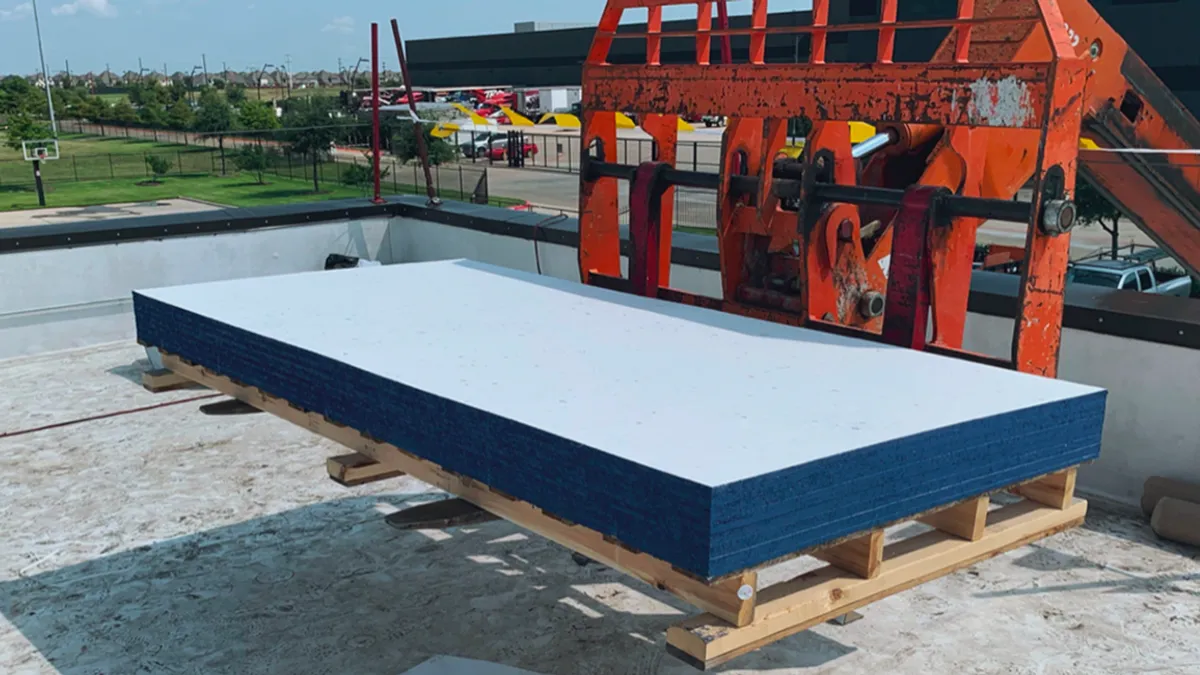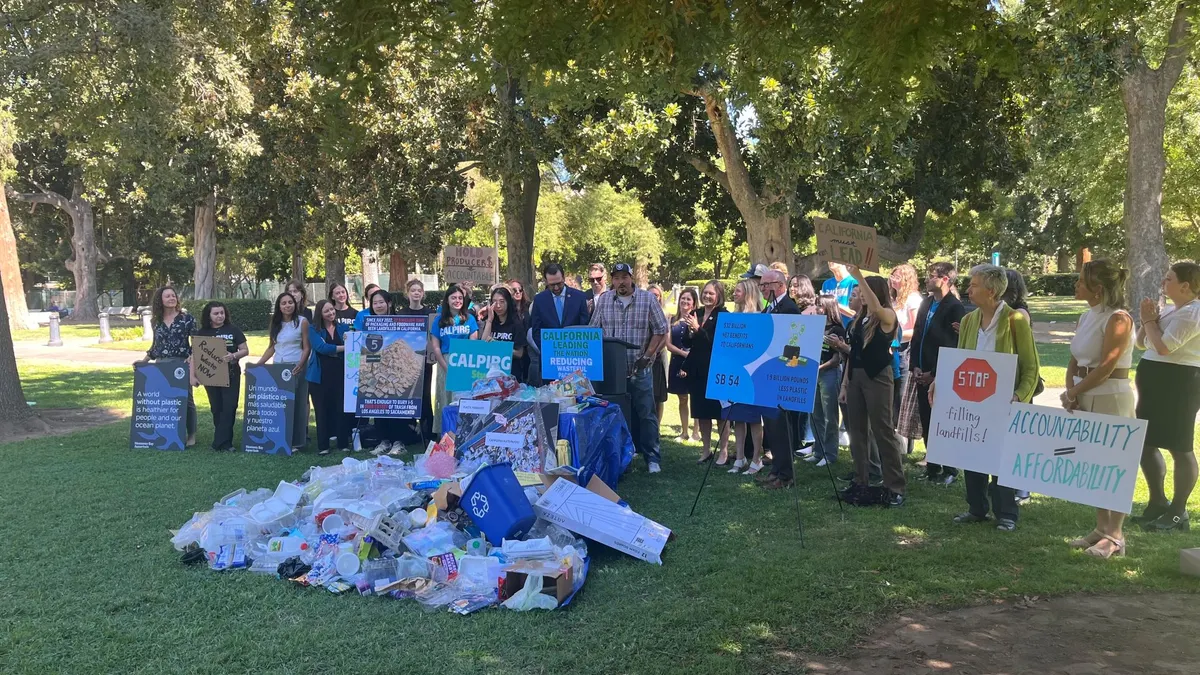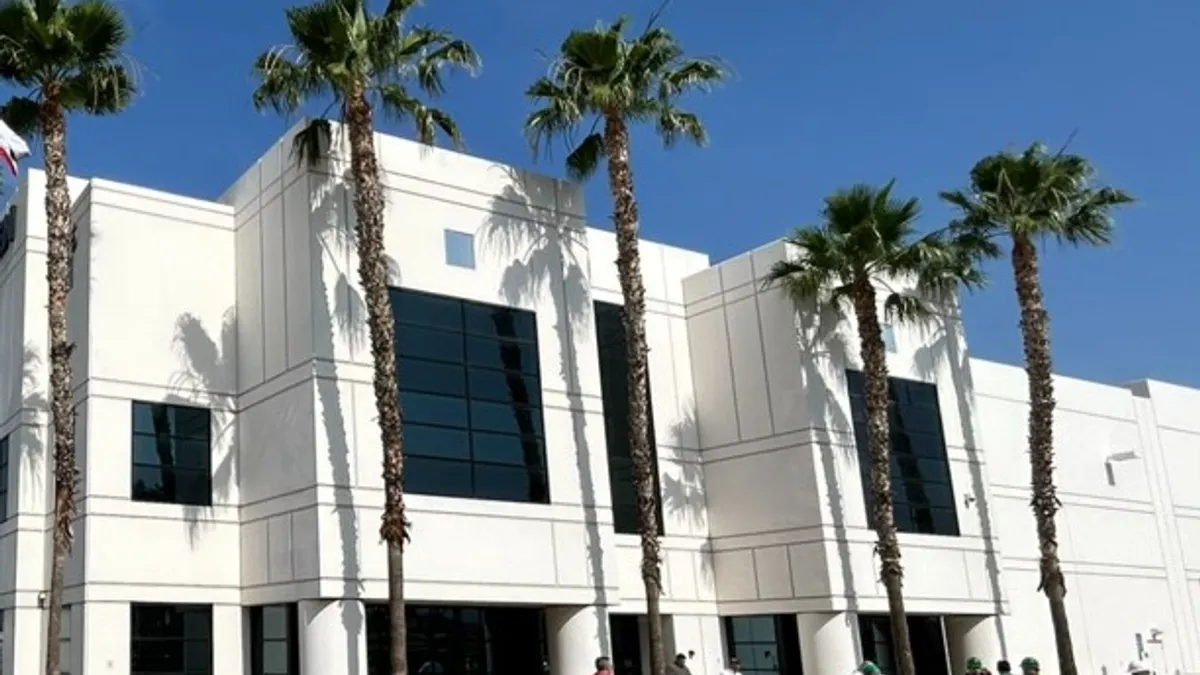As with most industries in the U.S., scrap recycling is fraught with older generations including baby boomers who have, until recently, dominated the space. Although some well-experienced recycling professionals have thus far resisted passing the torch to Generation X or millennials, a quantifiable shift now is occurring.
At the ISRI 2018 Convention and Exposition in Las Vegas, two members of ISRI’s newly launched Century Club — for retired or semi-retired industry veterans — joined two panelists from the association’s Young Executives group at a light-hearted workshop focused on scrap industry generational differences and changes.
The panelists punctuated a theme pervasive throughout many of the programs, workshops and receptions at this year's convention — successful intergenerational learning and sharing. Cooperation involves attention to older generations' vast institutional knowledge and transferring it to new industry entrants, as well as trusting younger generations' abilities, knowledge and fresh ideas.
Evolving industry practices
Some in the scrap recycling industry rely on tradition rather than innovation with operations, but in many instances, upcoming generations are changing that pattern.
The introduction of computers and other business management technology into recycling has had a profound effect, panelists said. The act of corresponding via email, quickly accessing information on the internet and "being able to read about the markets in the morning," is a drastic change, said Brandi Harleaux, chief operations officer at South Post Oak Recycling Center and a member of Young Executives.
The advent of handheld electronic analyzers to identify metals and plastics instead of testing materials with sparks and acid is another shift. "We don’t do that anymore," said Dan Garvin, president of Colorado Iron & Metal and a member of Young Executives. "Part of me is very sad about that because it’s a lost art form," but the other part appreciates the speed and efficiency of handheld analyzers.
Just like the greater recycling community, panelists from different generations disagreed on some aspects of this innovation. "The handheld units that I’ve seen over the years are a good introductory tool, but they do not guarantee [accurate] analysis," said Barry Hunter, president of Hunter Alloys and Century Club member.
Beyond technological advances, panelists noted younger generations have brought a greater focus to creating a positive workplace culture. Harleaux began recognizing employees’ birthdays upon joining South Post Oak Recycling Center, and it has helped to improve morale and create camaraderie. "The mantra in our yard has shifted from 'a place to work hard' to 'a fun place to work hard,'" Harleaux said.
Safety upgrades
The discussion about the value of handheld analyzers transitioned into generational differences in safety practices. Testing recyclable materials with sparks and acid, for example, increasingly is getting phased out due to the potential dangers it brings.
Panelists noted the new generation of employees has less tolerance for poor safety records and they intentionally seek out safe workplaces.
"The biggest trend we’re seeing right now is that our employees are coming to us because they want this," said Garvin, noting that his company just added dashboard cameras to vehicles based on worker requests. Harleaux agreed, saying, "It’s a different mindset and a different culture ... I can tell those who are newer to the industry, [safety] is almost like second nature."
Safety advancements are one area in which the different generations agree that progress is a good thing. Gone are the days when it was acceptable for employees to work without hardhats, seatbelts or other personal safety gear. "We were naïve, we were silly. Accidents happened," Hunter said. But now "you cannot escape the value of the focus on safety."
"We put so much more material through — cleaner, better and safer — than we did 30, 40 or 50 years ago. But that’s not good enough when it comes to safety," said Don Lewon, CEO of Utah Metal Works and Century Club member.
Family ties
Family businesses abound in the scrap recycling industry, and with that comes challenges related to family dynamics. Strong opinions on how to conduct business, especially generational differences regarding preferred business practices and innovations, can lead to friction outside of work if not kept in check. Although avoiding such conflicts altogether by keeping quiet might seem like a way to keep peace within the family, panelists of all generations instead suggest fostering strong communication and discussing issues head-on through respectful dialogue.
"When I came into the industry and the [family] business, we had some really intentional conversations about roles and responsibilities," said Harleaux.
One tactic for successful interactions is to keep the workplace relationship separate from the family relationship outside of work. "We have a father-daughter relationship, and we’re going to have a business relationship. I think a lot of people ... don’t make those boundaries and it becomes very tricky," Harleaux said. "Those conversations helped us create some lanes that we could run in."
"I don’t think most of those relationships will be broken if you speak up," Lewon said. "If you don’t speak up, that means more relationship breaking" because problems can fester and spread outside of the workplace. "Be very up-front and honest about how you feel."
Harleaux’s family conversations also uncovered some existing expectations regarding how younger generations will continue to run the business. That theme surfaced in other sessions at the ISRI convention as well, proving to be a frequently experienced frustration among young employees who don’t always feel like they’re given adequate room to work and improve. Experts advise older generations to be flexible and open to changes and innovation, rather than forcing younger generations to work a certain way or run a business exactly how it previously operated.
"It can be hard to have an impact and take calculated risks" when roles are already defined and operational expectations already are set in stone, Harleaux said. "If those conversations are not had ... those [problems] can" keep you up at night.
Patience and time are other key factors that calm family disputes. "When my brother and I first bought the business from our uncle, we had some interesting holiday dinners together ... and the gravy was not always passed," said Garvin. "Over time, we operated the business efficiently and built trust." Workers of all ages should “open up that dialogue [and] hopefully time will solve [any conflicts]," he said.


















